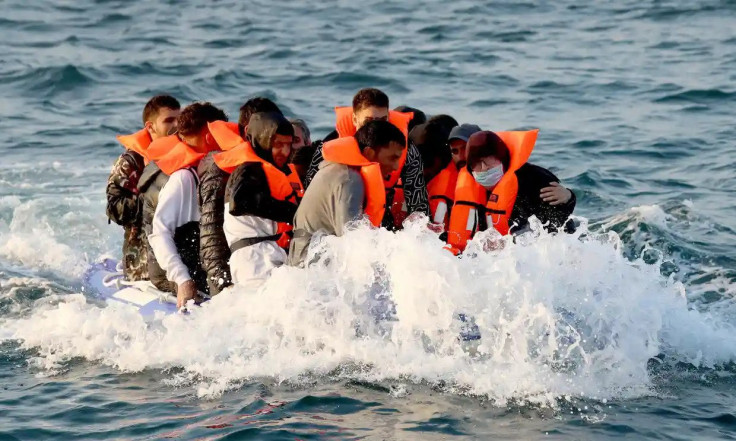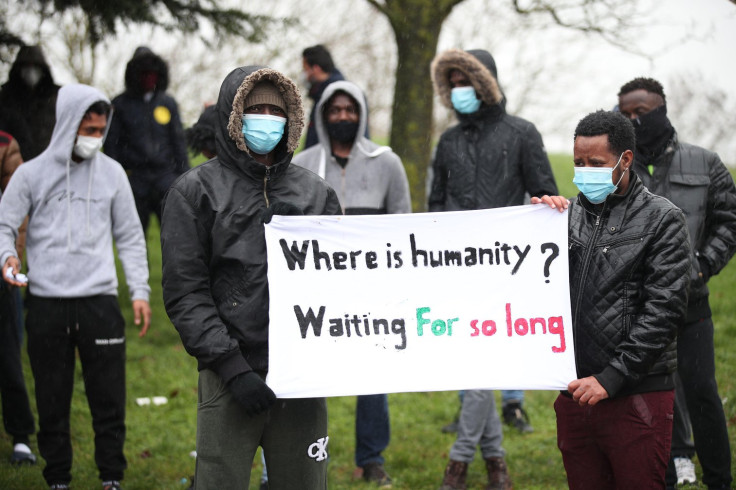Asylum decisions taken by the Home Office have fallen by 18% since December, new analysis shows
Asylum decisions have fallen by 18 per cent since December, according to an analysis conducted by the Home Office, revealing the backlog had risen to 172,758 at the end of March.

Asylum decisions have fallen by 18 per cent since December, according to an analysis conducted by the Home Office.
The latest figures show the backlog had risen to 172,758 at the end of March, and the number of asylum seekers waiting longer than six months for a decision now stands at 128,812.
The news is likely to heap further pressure on Rishi Sunak – yesterday, the UK Office for National Statistics (ONS) revealed that net migration rose to a new record calendar year figure of 606,000 in the 12 months to December 2022.
Migration numbers have been a persistent talking point in British politics, and the Conservatives have repeatedly stressed their desire to drastically reduce the number of asylum seekers entering the country.
In 2019, the Tory manifesto pledged to "bring overall numbers down." However, in 2021, the net figure remained high at 488,000. And in December 2022, Sunak declared he would clear the backlog of "legacy" asylum cases, promising that this would be achieved by the end of this year.
When Sunak made this high-profile promise, the number of backlog cases stood at 132,182, according to The Migration Observatory.
However, the newly-released figures suggest a rise of up to 57 per cent from the end of March 2022. Peter Walsh, a researcher at the Migration Observatory at the University of Oxford, described the backlog of cases as "the central problem."
"The reason, largely, is because asylum claims are being processed more slowly than they had been in the past," he told AFP.
The latest increase has led many to suggest the Government is struggling to control immigration numbers; they have received criticism from both the opposition and internally.
Labour said there had been "no action at all" to lower the backlog of asylum seekers and make sure claims are properly processed.
The shadow home secretary Yvette Cooper added that the government has "no plan and no grip on immigration."
Whilst Sunak admitted that migration numbers were too high, he denied that immigration is out of control.
Downing Street said measures it had introduced to tackle the number of unresolved cases would "take time to bed in."
In support of this sentiment, the ONS added that despite the rise in immigration last year, its long-term international migration estimates "suggest a slowing in growth over the most recent quarters."

In March of this year, Sunak's government introduced a controversial "illegal migration" bill, which aimed to remove the incentive for people to enter the UK via boat to gain Asylum.
Under the new laws, anyone who enters the UK illegally and has passed through a safe country will be legally required to be removed and the Home Secretary will have the power to enforce it.
However, the proposal has received widespread criticism from both sides of the political spectrum; some described it as "cruel and inhumane" while others say it will break human rights laws.
Most recently, The archbishop of Canterbury has proposed two amendments to the flagship illegal migration bill that he had earlier deemed "morally unacceptable."
With the controversial plans set to enter the committee stage in the House of Lords on Wednesday, Justin Welby called on ministers to implement 10-year strategies for tackling human trafficking and for international collaboration to solve the refugee crises.
Referring to the bill as a part of the government's migration strategy, Immigration Minister Robert Jenrick said he still expected to achieve a significant reduction in migration numbers, due to the "series of measures" now in place to get numbers falling.
Speaking in the Commons today, he said these included plans to increase the number of officials handling asylum cases and moves to "reduce bureaucracy, to streamline the process."
As part of its plans to reduce the backlog, the government has announced plans to replace face-to-face interviews with a 10-page questionnaire for around 12,000 asylum seekers from five countries.
The Home Office also says it has introduced caseworker units specialised by nationality and is digitising the process to speed up case handling.
However, Enver Solomon, chief executive of the Refugee Council charity, said the government was "unlikely" to meet its targets without a "more ambitious, workable and person-centred approach."
Adding that the high number of claims awaiting a decision was "unacceptable," he called for "real commitment and resourcing to tackle the backlog, including "quick and good quality decisions based on the merit of each claim."
Today, new government figures also revealed less than one per cent of small boat arrivals in the last year have had a decision on their status.
They also show that more than three-quarters of all small boat asylum applications since 2018 are still awaiting a decision.
A 'small boat' is one of several vessels used by individuals who cross the English Channel, to gain entry to the UK without a visa or permission to enter – either directly by landing in the UK or having been intercepted at sea by the authorities and brought ashore.
Last year, over 45,000 asylum seekers arrived in the UK across the English Channel via this method alone.
The recent migration numbers are a further blow to Sunak's government, which has become embroiled in a row this week over interior minister Suella Braverman's handling of a speeding offence.
© Copyright IBTimes 2025. All rights reserved.






















